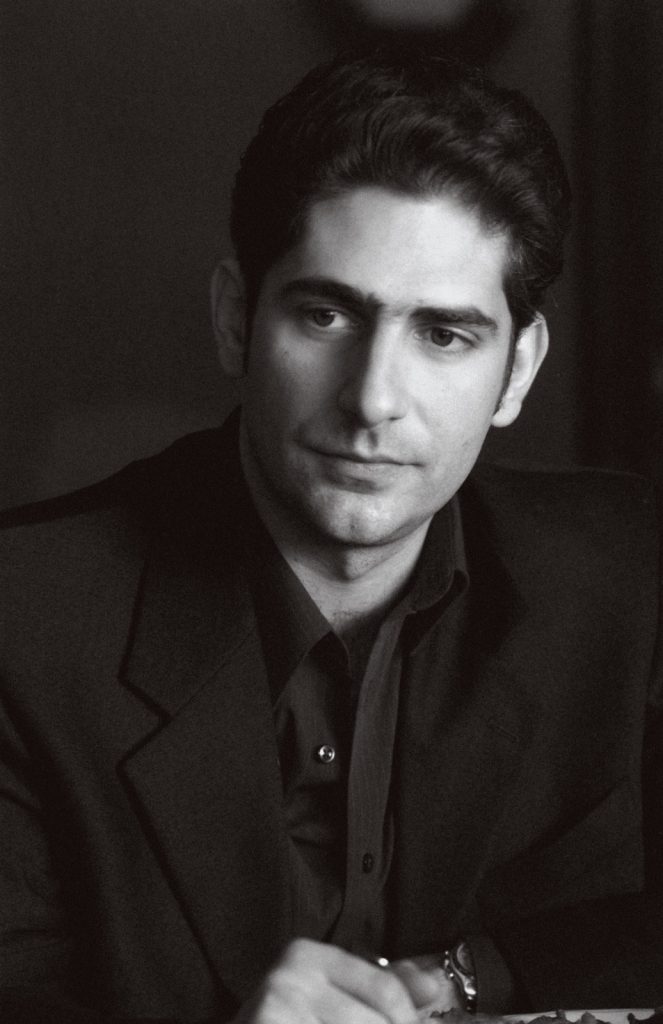After taking refuge in December 2008 and developing a daily meditation practice, Michael Imperioli, best known for his role as Christopher Moltisanti on the HBO hit series “The Sopranos,” is applying what he’s learned from Buddhism to his acting. Earlier this year, Tricycle sat down with Imperioli at the magazine’s offices in New York City, where he spoke about mindfulness on stage, the impermanence of fame, and how Buddhism has changed him as a person.
You’ve said before that your skills as an actor are some of the very same skills you use in your practice. Can you talk about that? I went to the Lee Strasburg Institute, which teaches an approach to acting that originated with Stanislavski in the Moscow Art Theatre. The first thing you do when you start to study is, you sit in a chair and try to become aware of your body and your muscles, releasing all tension. Then you make a resonant sound—an “ahhh”—and try to connect to your emotion and see what’s there. It took me a while to put it together, but it’s a lot like meditation. It’s about simple things: creating simple sensory realities. Another exercise uses an imaginary coffee cup. You create it and feel the weight of the thing—not by pantomime, but through your senses. It’s a kind of a one-pointed concentration exercise. And it’s valuable training for an actor: when you go on stage, rather than just being aware of lines, you really involve yourself in the sensory reality of the world.
I had one acting teacher who would always say, “Do it while you do it,” which is a very Buddhist ideal. I was seventeen at the time, and it made no sense to me; I never understood what the hell he was talking about. But now when I think of it, it’s about awareness; it’s about mindfulness.
So “Do it while you do it” is an exercise in being present? Absolutely. I think that’s the essence of it. One of my favorite actors, Ben Gazzara, wrote an autobiography called “In the Moment,” which is about being present in the scene. You’re not just saying lines and moving to face the camera or the audience. You’re trying to lose yourself in the moment—or find yourself in the moment—to be invested in the moment and to be present.
As an actor, you take on another identity. Does it make you wonder about your own identity or the teachings on nonself? You know, it hasn’t. The search for a character is very different than the search for yourself. A character may have a lot of dimensions, but it has nowhere near the dimension of your own life. Acting is a created moment. It’s an artificial reality. But life is life. And I find that practicing Buddhism limits the places to hide. You can’t hide behind behaviors.
All of a sudden you became famous on “The Sopranos,” and everyone recognized you. You talk about not being able to hide from yourself, but what was it like not being able to hide from everybody else? It’s a strange trip that gets played on your ego. There were things about it that were very pleasant, but there were also difficult and strange things. I’d already been acting for a long time and was older; if it had happened when I was seventeen, when I started studying, I might not be here right now. Without some kind of foundation, it can be very destructive.
Does Buddhist practice help you with the difficulties of fame? I think it puts fame in perspective when you learn that everything changes—and not only changes, but dies. People make the mistake of thinking that fame is not impermanent, that there is some kind of reality to it, when it’s really a matter of perception.
You recently took refuge vows. How has this affected your life? It’s made a big impact, having a daily practice. There is an underlying intelligence to Buddhism that I’ve found gives me a lot of comfort and faith. Finally I can say to myself, “O.K., I don’t need to search anymore. This is the path.”
Thank you for subscribing to Tricycle! As a nonprofit, we depend on readers like you to keep Buddhist teachings and practices widely available.
